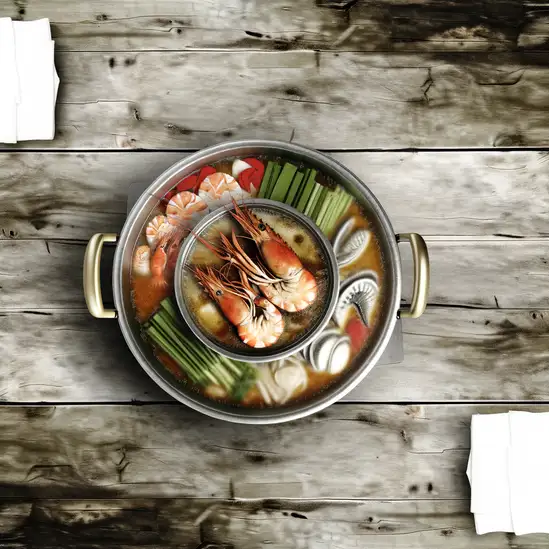



Imagine stepping into Yantai,and instantly feeling the gentle sea breeze mingle with the scent of fresh seafood and blooming flowers. This coastal city in China has a laid-back charm that’s both refreshing and invigorating. Walking along the waterfront,you’ll hear the rhythmic lapping of waves against the shore,punctuated by the distant calls of fishing boats returning with their catch. The streets buzz softly with life—vendors chatting,the clink of tea cups in cozy cafes,and the occasional laughter spilling out from bustling night markets. Yantai’s character is deeply tied to its maritime roots and rich history. The city wears its past gracefully,with colonial-era architecture standing alongside modern glass towers,creating a unique blend of old and new. You can wander through vibrant markets where the air is thick with the aroma of grilled scallops and sweet,juicy apples—Yantai is famous for its fruit orchards,after all. The locals are warm and welcoming,eager to share stories over a glass of their renowned crisp white wine,which tastes like sunshine in a bottle. What really makes Yantai special is how it invites you to slow down and savor the moment. Whether you’re exploring quiet temples tucked away on hillsides or cycling through seaside parks,there’s a peaceful rhythm here that stays with you long after you leave. It’s a place where the sea,the food,and the friendly smiles come together to create an experience that feels both timeless and alive.
The information on this page is currently being reviewed by Tripkliq and should be used as a guide only
Eng word: Hello
Eng pronunciation: nǐ hǎo
Local language: 你好
Eng word: Goodbye
Eng pronunciation: zài jiàn
Local language: 再见
Eng word: Thank you
Eng pronunciation: xiè xiè
Local language: 谢谢
Eng word: How much
Eng pronunciation: duō shǎo qián
Local language: 多少钱
Eng word: Toilet
Eng pronunciation: cè suǒ
Local language: 厕所
Eng word: Help me
Eng pronunciation: bāng bāng wǒ
Local language: 帮帮我
Eng word: Yes
Eng pronunciation: shì
Local language: 是
Eng word: No
Eng pronunciation: bù shì
Local language: 不是
Eng word: Excuse me
Eng pronunciation: duì bù qǐ
Local language: 对不起
Yantai, which means 'Smoke Tower,' got its name during the Ming Dynasty. Coastal watchtowers were built to warn of pirate invasions, and smoke signals were used to alert nearby towns, giving the city its unique name.
Yantai has been an important port city since ancient times, playing a significant role in the Maritime Silk Road. It facilitated trade and cultural exchanges between China and other countries.
Yantai is known as the birthplace of China's modern wine industry. Changyu Pioneer Wine Company, established in 1892, is one of the oldest and most famous wineries in China, making Yantai a must-visit destination for wine enthusiasts.
Penglai Pavilion, located in Yantai, is one of China's Four Great Towers. It is steeped in mythology and is said to be the place where immortals ascended to heaven, making it a popular tourist attraction.
Yantai has a long history of pearl cultivation and is renowned for its high-quality seawater pearls. The city is a hub for pearl production and trade, attracting visitors interested in this traditional craft.
In the late 19th century, Yantai (then known as Chefoo) became an important treaty port, opening its doors to international trade and cultural exchange. This period left a lasting impact on the city's development.
Yantai is home to sections of the Qi Great Wall, which predates the more famous Great Wall of China. Built during the Warring States period, it served as a defense against invasions and is a testament to ancient Chinese engineering.
The Changdao Islands, part of Yantai, have a rich history and are known for their stunning natural beauty. These islands were historically used as a strategic naval base and are now a popular destination for eco-tourism.
Yantai has a long history of traditional Chinese medicine (TCM). The city is known for its herbal remedies and TCM practices, which have been passed down through generations and continue to attract visitors seeking holistic healing.
In Yantai, the most common Power Adaptor is Type A, Type C, Type I.







A communal dish featuring a variety of fresh seafood, vegetables, and noodles cooked in a flavorful broth at the table.

Fresh clams stir-fried with garlic, ginger, and a mix of local spices, often served with a side of dipping sauce.

Known for its crisp texture and sweet flavor, Yantai apples are often enjoyed fresh or used in desserts.

Tender squid marinated in a special sauce and grilled to perfection, often served with a spicy dipping sauce.

Fish braised in a savory sauce made with soy sauce, ginger, and garlic, showcasing the region's fresh catch.

Savory pancakes made with a mix of flour and local vegetables, often served as a street food snack.

Dumplings filled with a variety of ingredients, including seafood and vegetables, steamed to retain their juiciness.
If you ever find yourself craving a place where the sea breeze mingles with the hum of lively streets,Qingdao is where you want to be. This coastal city has a laid-back charm that feels both refreshing and invigorating. Imagine walking along the waterfront,the salty air brushing your face as fishing boats bob gently in the harbor. The sound of seagulls overhead blends with the distant clinking of glasses from cozy seaside cafes. It’s a place where the ocean’s rhythm seeps into everyday life,making even a simple stroll feel like a mini escape.
Qingdao’s character is a fascinating mix of old and new. You’ll spot red-tiled roofs and German colonial architecture standing proudly alongside sleek modern buildings. The city’s history whispers through its streets,especially in areas like Badaguan,where each villa tells a story. But it’s not just about looks—Qingdao pulses with a vibrant culture. The local markets buzz with vendors selling fresh seafood that’s so fresh you can almost taste the ocean in every bite. And speaking of taste,you absolutely have to try the famous Qingdao beer,brewed right here,which pairs perfectly with grilled clams or spicy street snacks.
What really makes Qingdao stick with you is its warmth—the friendly smiles of locals,the casual conversations over tea,and the way the city invites you to slow down and savor the moment. Whether you’re wandering through fragrant pine forests or watching the sunset paint the sky over May Fourth Square,Qingdao feels like a place that welcomes you home,even if just for a little while.
If you ever find yourself craving a blend of coastal charm and vibrant city life,Dalian is where you want to land. The moment you step onto its breezy waterfront,there’s this fresh,salty air that instantly wakes you up,mingling with the distant calls of seagulls and the gentle hum of fishing boats. It’s a city that feels alive but never rushed,where the rhythm of the sea sets a calming pace. Walking along the seaside promenade,you’ll catch glimpses of locals practicing tai chi at dawn or families sharing laughter over freshly grilled seafood,the aroma of garlic and chili teasing your senses.
Dalian’s character is a fascinating mix of old and new. You’ll find European-style architecture standing proudly alongside sleek modern skyscrapers,a nod to its rich history as a port city with international influences. The streets buzz with energy,especially in the bustling markets where vendors shout out their daily catch or hand-pulled noodles,inviting you to taste the city’s soul. Don’t miss trying the local specialties—imagine biting into a juicy,perfectly seasoned sea cucumber or savoring a bowl of spicy Dalian-style hot pot that warms you from the inside out.
What really makes Dalian stick with you is its warmth—not just in the mild climate but in the people. There’s a genuine friendliness here,a willingness to share stories and smiles that makes you feel like you’re more than just a visitor. Whether you’re wandering through the fragrant flower gardens or catching the sunset over Tiger Beach,Dalian leaves you with a sense of peaceful adventure,a place where the sea and city dance together in perfect harmony.
Imagine stepping into a city where the past and future dance side by side,and that’s Shanghai for you. The moment you arrive,there’s this electric buzz in the air—neon lights flicker against the twilight sky,while the gentle hum of the Huangpu River carries stories from centuries ago. Walking along the Bund,you can almost taste the salty breeze mingling with the aroma of street food stalls sizzling with dumplings and scallion pancakes. It’s a city that never quite sleeps,yet somehow feels intimate and alive all at once.
Shanghai’s character is a fascinating blend of old-world charm and cutting-edge modernity. You’ll find yourself wandering through narrow alleys in the French Concession,where leafy trees shade quaint cafes and art galleries,then suddenly be swept up by the futuristic skyline of Pudong,with its towering skyscrapers piercing the clouds. The city’s rhythm is a mix of traditional tea houses where locals chat over jasmine tea and the pulse of techno beats spilling out of rooftop bars.
What really makes Shanghai unforgettable is how it invites you to slow down and soak in its layers. The chatter of vendors,the clinking of mahjong tiles,the scent of jasmine and roasted chestnuts—all these details create a sensory tapestry that feels both vibrant and comforting. It’s a place where every corner tells a story,and every meal is a celebration. Trust me,once you’ve felt Shanghai’s heartbeat,you’ll want to come back just to listen again.
If you ever find yourself craving a coastal escape that feels both timeless and alive,Zhoushan is where you want to be. Imagine waking up to the gentle hum of fishing boats bobbing in the harbor,the salty breeze carrying the scent of fresh seafood and seaweed. The city’s rhythm is unhurried but vibrant,a place where ancient temples perch on rocky cliffs and modern life flows seamlessly alongside centuries-old traditions. Walking through its streets,you’ll hear the chatter of locals bargaining at bustling markets,the clatter of chopsticks in seaside eateries,and the distant call of seagulls overhead.
Zhoushan’s charm lies in its intimate connection to the sea. The islands scattered around the city offer stunning views of turquoise waters meeting rugged shorelines,where you can feel the cool spray of waves and watch fishermen haul in their daily catch. The seafood here isn’t just fresh—it’s a celebration of the ocean’s bounty,with dishes bursting with umami and subtle brininess that linger on your tongue. Don’t miss trying the local specialties like steamed scallops with garlic or the sweet,tender sea cucumbers.
Beyond the food and scenery,Zhoushan carries a quiet spirituality. The temples,especially the famous Putuo Mountain,invite you to slow down and soak in the peaceful atmosphere,where incense curls in the air and monks chant softly. It’s a place that invites curiosity and calm,where every corner tells a story and every sunset feels like a personal gift. Trust me,Zhoushan isn’t just a destination—it’s a feeling you’ll want to return to.
Imagine stepping into a place where the ocean breeze carries the scent of salty waves mingled with the sweet aroma of blooming frangipani. That’s Xiamen for you—a coastal city that feels like a gentle hug from the sea itself. Walking along the palm-lined streets,you’ll hear the rhythmic chatter of locals and the distant hum of fishing boats returning with the day’s catch. The city pulses with a laid-back energy,a perfect blend of old-world charm and modern vibrancy.
What really makes Xiamen stand out is its unique mix of cultures. The colonial-era architecture on Gulangyu Island,with its pastel-colored mansions and winding lanes,invites you to wander and get lost in stories whispered by the walls. Meanwhile,the bustling markets and street food stalls on the mainland offer a sensory feast—imagine biting into a freshly made oyster omelet,the flavors rich and briny,or sipping on a cup of fragrant jasmine tea while watching the world go by.
Xiamen’s character is warm and welcoming,with a rhythm that encourages you to slow down and savor the moment. Whether you’re cycling along the scenic coastline,exploring quaint temples tucked away in quiet corners,or simply sitting by the water as the sun dips below the horizon,there’s a peacefulness here that stays with you long after you leave. It’s a city that invites you to breathe deeply,taste boldly,and feel truly alive.
Imagine stepping into a city where towering skyscrapers meet bustling street markets,and the scent of sizzling street food mingles with the salty breeze from Victoria Harbour. That’s Hong Kong for you—a vibrant pulse of energy that never quite slows down. Walking through its neighborhoods,you’ll hear a symphony of sounds:the chatter of locals bargaining over fresh produce,the clatter of dim sum carts,and the distant hum of ferries gliding across the water. It’s a place where East and West blend seamlessly,creating a unique rhythm that’s both modern and deeply rooted in tradition.
What really grabs you about Hong Kong is its character—bold,unapologetic,and endlessly curious. One moment you’re wandering through neon-lit streets in Mong Kok,alive with the buzz of night markets and arcade games,and the next,you’re finding calm in the lush greenery of Victoria Peak or the quiet temples tucked away in the city’s corners. The city’s food scene alone is a journey:from steaming bowls of wonton noodles to delicate egg tarts fresh from the oven,every bite tells a story.
Hong Kong feels like a city that’s always inviting you to explore a little deeper,to taste a little more,and to soak in its vibrant culture. It’s a place where every street corner has a story,and every sunset over the harbor feels like a personal gift. Trust me,once you’re there,you’ll understand why it’s impossible not to fall a little in love with this dynamic city.
Scammers pose as art students and invite tourists to view their 'exhibition,' pressuring them to buy overpriced, low-quality art.
Shops or street vendors sell fake branded items at high prices, claiming they are authentic.
Scammers sell counterfeit tickets to popular attractions, leaving tourists unable to enter upon arrival.
Unlicensed taxis or drivers overcharge tourists or take longer routes to inflate the fare.
Unlicensed guides offer tours but provide little value or take tourists to overpriced shops where they earn commissions.
Vendors in tourist-heavy markets inflate prices significantly for foreigners, expecting tourists to not negotiate.
Some restaurants, especially near tourist areas, charge excessively high prices for seafood dishes, sometimes without displaying prices upfront.
In crowded tourist areas, pickpockets target distracted visitors, stealing wallets, phones, or other valuables.
Street performers or photo opportunities with animals may demand unexpected high fees after tourists engage with them.
Tourists are approached by friendly locals who invite them to a tea house. After enjoying tea, they are presented with an exorbitant bill.
China has strict anti-drug laws, and Yantai is no exception. The possession, use, or trafficking of illegal drugs is severely punished, with penalties ranging from heavy fines to imprisonment or even the death penalty for serious offenses. Tourists should avoid any involvement with drugs, including cannabis, which is illegal in China regardless of its legality in other countries.
Smoking is generally prohibited in public indoor spaces in Yantai, as per China's national regulations on smoking control. This includes places like restaurants, shopping malls, public transportation, and offices. Some outdoor public areas, such as parks or tourist attractions, may also have designated non-smoking zones. Violators may face fines, though enforcement can vary. Tourists should look for 'No Smoking' signs and adhere to local rules.
Vaping is subject to similar restrictions as smoking in Yantai. It is prohibited in public indoor spaces and other areas where smoking is banned. While vaping is less common in China compared to smoking, tourists should avoid using e-cigarettes in public spaces to prevent potential fines or misunderstandings.
What are other people saying about Yantai?
Recent Social posts about Yantai
There is nothing to show you for now.